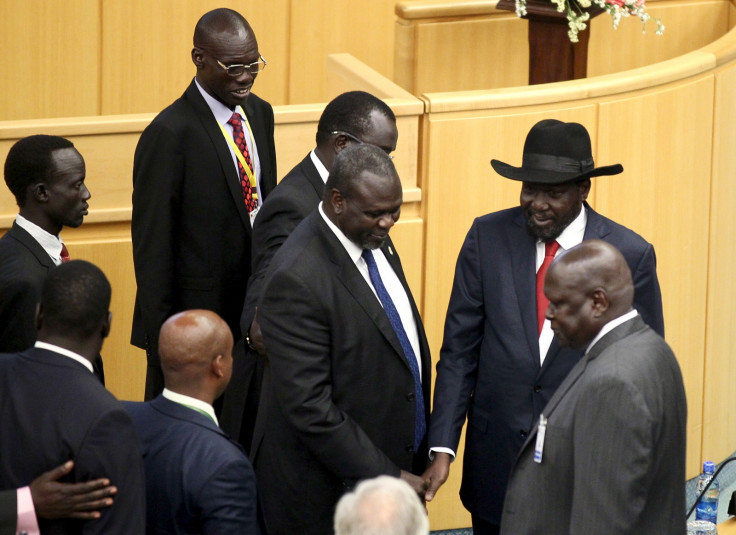South Sudan: Agriculture minister resigns accusing government of failing peace agreement
Lam Akol Ajawin claims he cannot work under under 'such regime' as fears of new civil war loom.
The South Sudanese minister of agriculture and food security has resigned, claiming a peace deal signed in August 2015 had failed to be implemented. Lam Akol Ajawin was part of the Transitional Government of National Unity, established under the terms of the peace agreement, which aims to seek an end to the ongoing conflict.
In his resignation speech, Ajawin accused President Salva Kiir of undermining the peace deal by allegedly masterminding a military attack against the former vice-president Riek Machar in the capital Juba, "dislodging him from Juba and invoking his absence to fill his position with a person of his choice."
"One cannot with a clear conscience serve under such a regime," Ajawin wrote in a resignation letter, according to Radio Tamazuj.
The government has denied the allegations, accusing Machar's forces of attacking troops in Juba and claiming Gai's appointment was in line with the peace agreement.

Tensions as Machar replaced
Machar had fled South Sudan in 2013, when the country descended into civil war. His return earlier this year and his reinstatement as vice-president had restored hopes for the implementation of the peace process. However, tensions have been running high since Machar's return.
In July, Machar fled Juba following deadly fighting that left at least 300 people dead. He accused government forces of opening fire on his troops, and said he would return to the capital once a third-party force is deployed to ensure his and his officials' protection.
However, he was dismissed when a section of the Sudan People's Liberation Movement-in-Opposition (SPLM-IO) appointed Taban Deng Gai, minister of mining and SPLM-IO former chief negotiator, as the acting vice president. Machar deemed the new appointment as illegal.
Some analysts have pointed out the replacement could create fractures within the opposition with a group supporting Machar and the other supporting Gai. This, coupled with the recent resurgence of violence, is sparking fears that South Sudan could be plunged back into civil war.
South Sudan's descent into civil war
South Sudan's conflict erupted in 2013 when President Kiir, of the Dinka ethnic group, fired his deputy Machar, from the Nuer group, and his cabinet.
August 2015 peace deal: the key elements
- Both parties commit to immediate cessation of violence
- Machar to be reinstated as vice-president
- Foreign troops to be withdrawn
- Military personnel in Juba to be replaced by police and guards
- Creation of transitional government that will stay in power for 30 months
- Presidential elections to be held 30 days before end of transitional government mandate
- Probe into abuses committed during conflict
For full document, click here
Ethnic-related violence then spread, with militia groups carrying out attacks in villages and areas known to be inhabited by either the Dinka or Nuer tribes.
More than 10,000 civilians have so far been killed in the conflict, amid allegations of crimes against humanity committed by both sides, including extrajudicial killings, abductions, rape, torture and use of child soldiers. At least two million people have also been displaced.
Although the warring factions have signed at least seven peace deals, violence has continued, and a January report from the African Union blamed both leaders for the ongoing unrest.
Following the recent upsurge of violence, the South Sudanese government has been urged to accept more UN peacekeepers in the country, in a plan backed by the African Union (AU). However, the government opposed the plan, with the South Sudanese ambassador in the UK exclusively telling IBTimes UK the country does not want "to be meddled with by foreign troops".
© Copyright IBTimes 2025. All rights reserved.






















